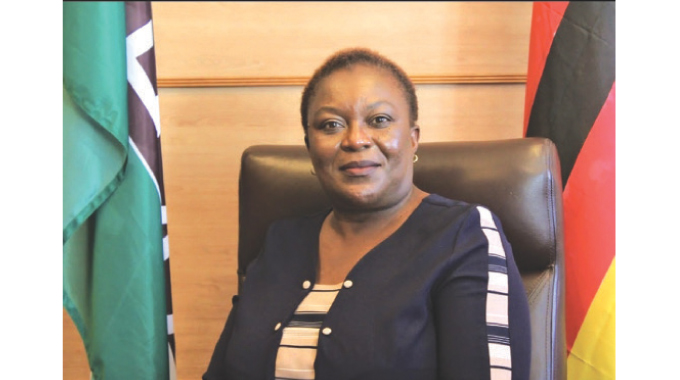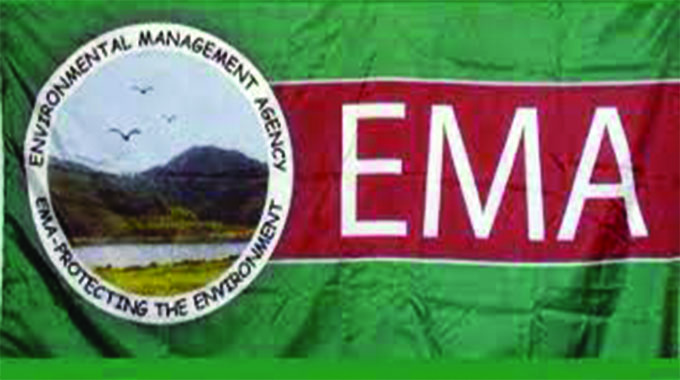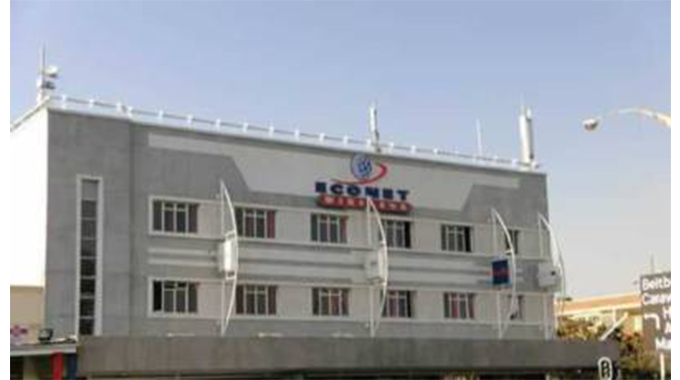EMA upgrades inspection management system

Midlands Bureau Chief
THE Environmental Management Agency (EMA) is developing an inspection management system in line with international standards through establishing inspection policies, management procedures, standard operating procedures and work instructions to be accredited to the International Standards Organisation.

Environmental Management Agency (EMA)
This is meant to standardise environmental inspections throughout the country.
International accreditation will help the agency to fulfil some of its core values such as transparency during inspections since systems will be subject to public scrutiny.
EMA is a statutory body responsible for ensuring the sustainable management of natural resources and protection of the environment, prevention of pollution and environmental degradation and preparation of environmental plans for the management and protection of the environment.
The agency is already running an Environmental Management Laboratory that was ISO accredited since 2012.
In an interview on the sidelines of the ISO 17025 workshop in Kwekwe, EMA laboratory manager, Ms Sylvia Yomisi, said the management system is supposed to be aligned to international standards.
“We are gathered as EMA is to develop a management system for our inspection services.
EMA is embarking on the road towards accreditation of its inspection activities to the International Standards Organisation (ISO 17025) for inspection bodies,” she said.
“So we have taken experts or staff from various provinces and areas to come and develop this system together.
So this system comprises of the policies we are going to use, our management procedures that we are going to use, Standard Operating Procedures that we are going to use in inspections, so after the workshop we expect that we have a system that is documented that is based on ISO 17025 international standard for inspection bodies.”
Ms Yomisi said it is prudent that EMA inspection bodies align themselves with ISO 17025 in terms of inspections.
“As we are here, this is not the first standard which EMA has tried to align to.
We have our testing services for the EMA laboratory which has also been aligned to ISO 17025 which is an international standard for testing and calibration bodies.
“The EMA laboratory has been accredited from 2012 to date and where we have managed to maintain this accreditation for testing laboratory. So this is not a new development in EMA.
We are moving towards standardisation of the whole operations as we look at standardisation of the whole agency,” she said.
EMA environmental education and publicity manager, Ms Amkela Sidange said meeting the new standards symbolises growth internally and externally.
“The growth is in the sense that we are saying we are actually building capacity among our people so that they go and deliver the best to the public and all for the betterment of the environment because what is critical at the moment or what we are looking at is the protection of the environment,” she said.
Ms Sidange said the standards will also enable the agency to offer relevant and adequate services to both local and international investors who are also ISO accredited.

International Standards Organisation (ISO)
“EMA is embarking on the road towards accreditation of its inspection activities to the ISO 17025 for inspection bodies so that there is uniformity and do away with discrepancies.
So we are standardising inspection procedures, and at the end of the day when the public interfaces with EMA there is credibility in everything and this will actually remove bias.
“We will do away with impartiality we sometimes hear from the members of the public because we know that through ISO all our operations will be similar in a way and remove bias or remove all the emotions usually attached to inspections that we do and at the end of the day results will be very credible,” she said.
Another exciting part about ISO, Ms Sidange said, is that as an agency, they are looking at economic development.
Ms Sidange said the standards will enhance public confidence in the management of the environment.
“So when we are aligned to international practices, we are able to accommodate foreign investors and as we do that we are also building our economy.
We are on this economic drive and so when we are able to do international inspections, then we will be able to accommodate foreign investors and contribute to building the economy.
EMA will be able to do international inspection and accommodate foreign investors,” she said.
“The quality standards we are talking about talk to a number of parameters including the turnaround time such that our inspectors will be in uniformity and do away with disparities.
The standards mean we will operate in uniformity, at the end of the day leave the public satisfied and the environment in safe hands,” she said.











Comments